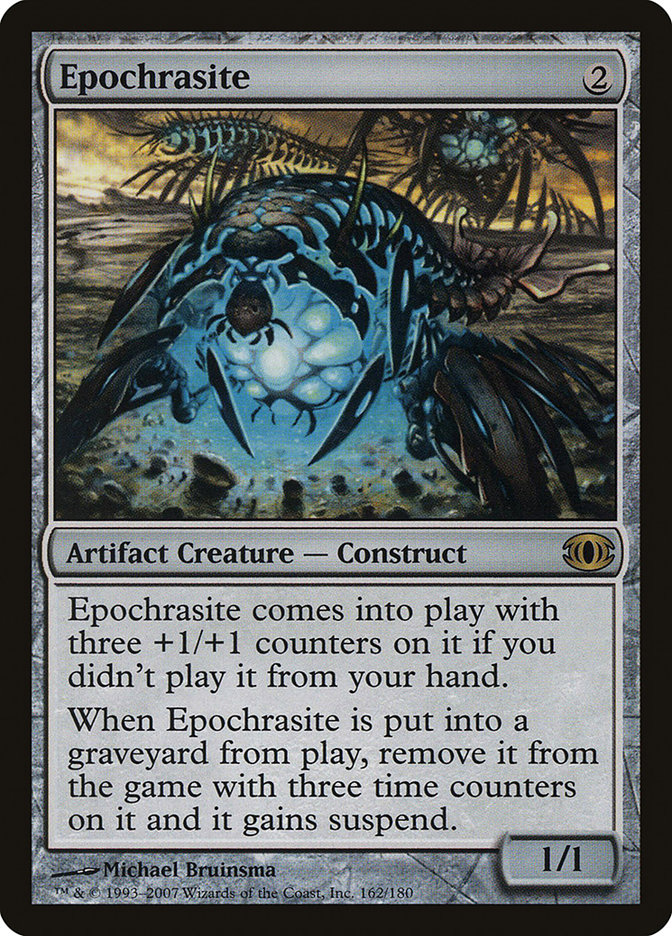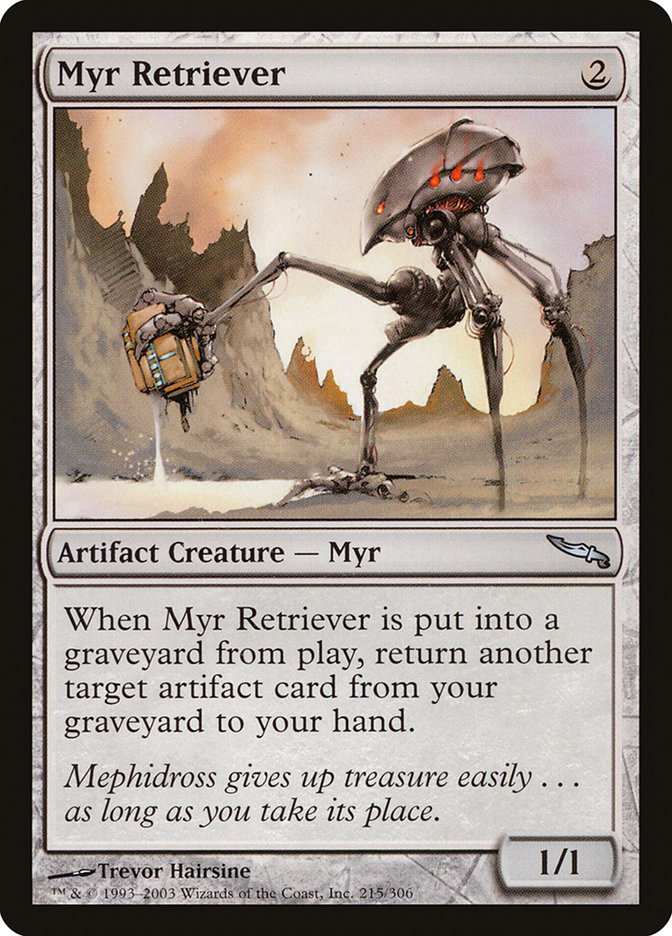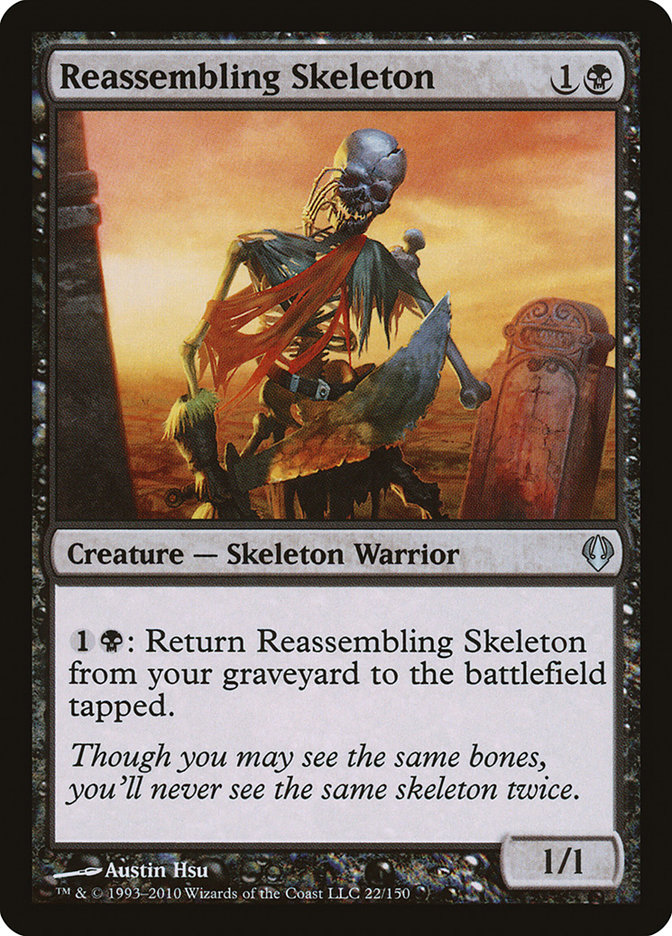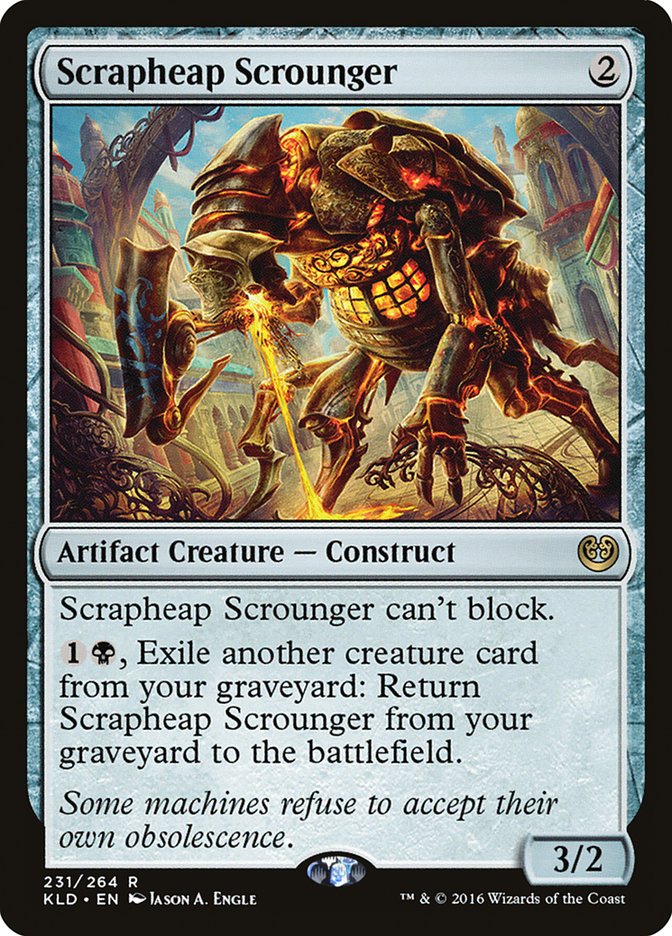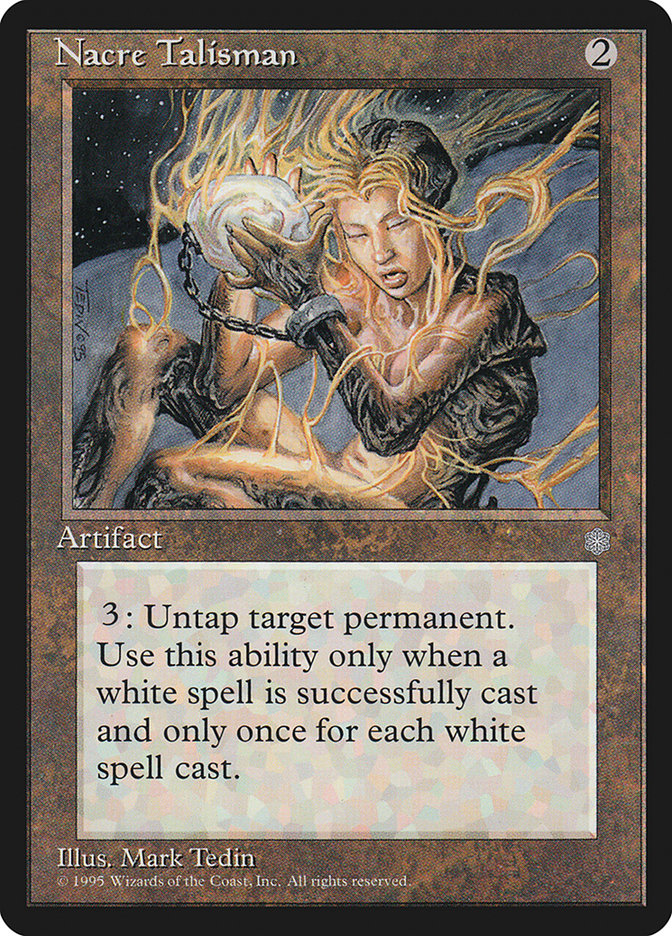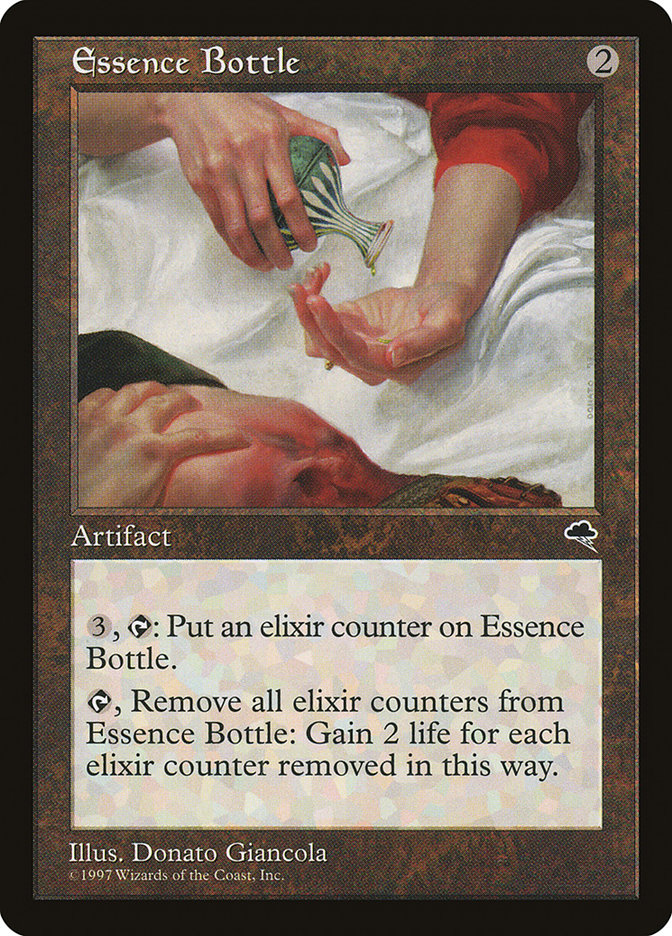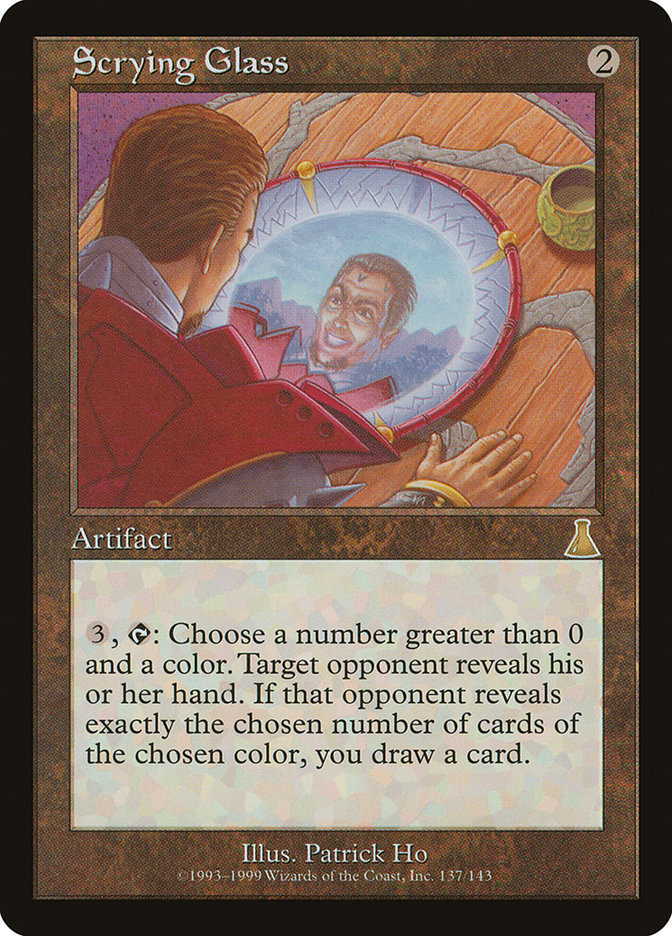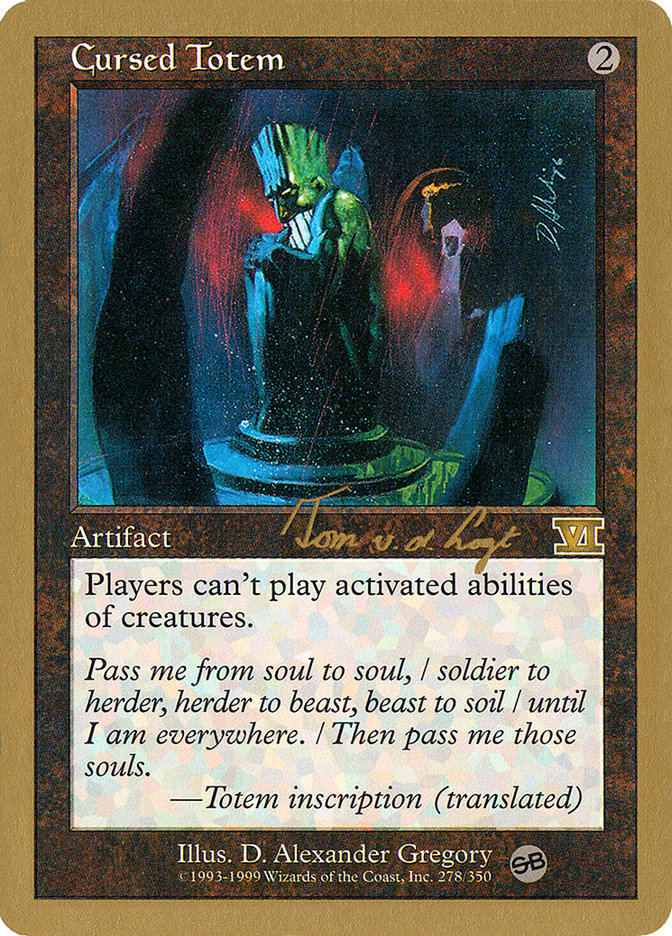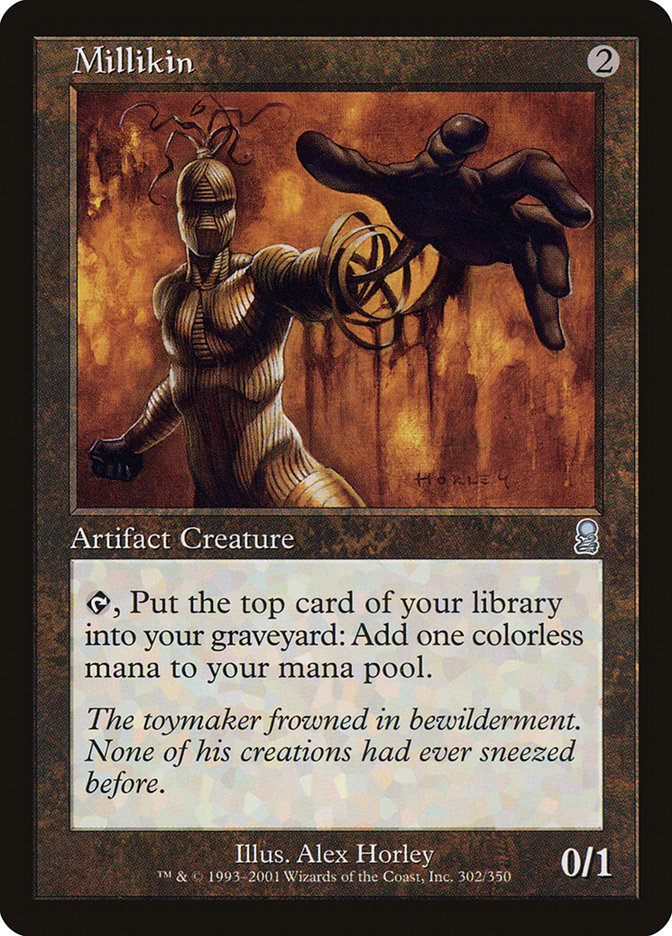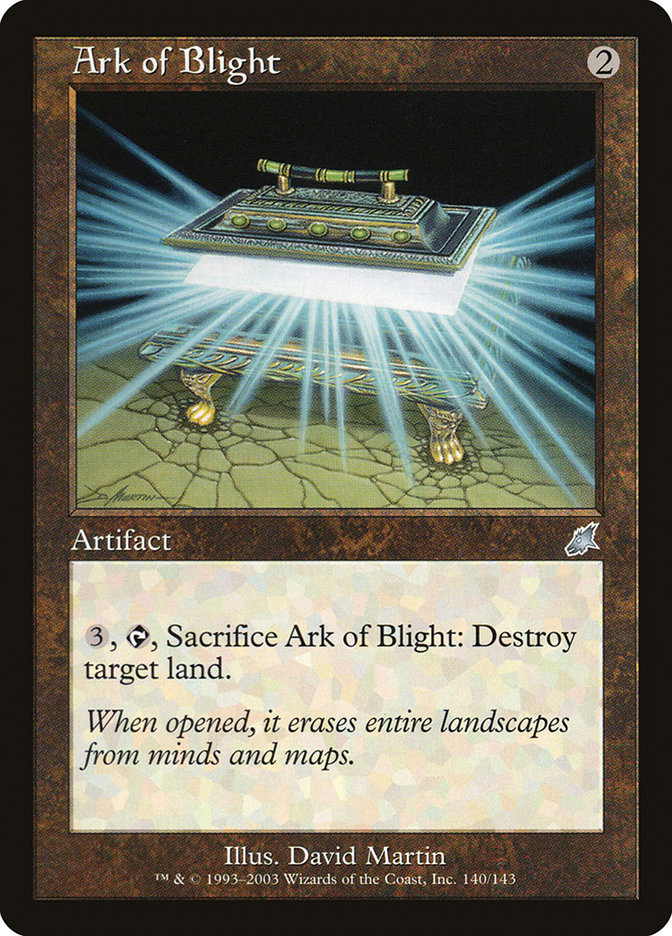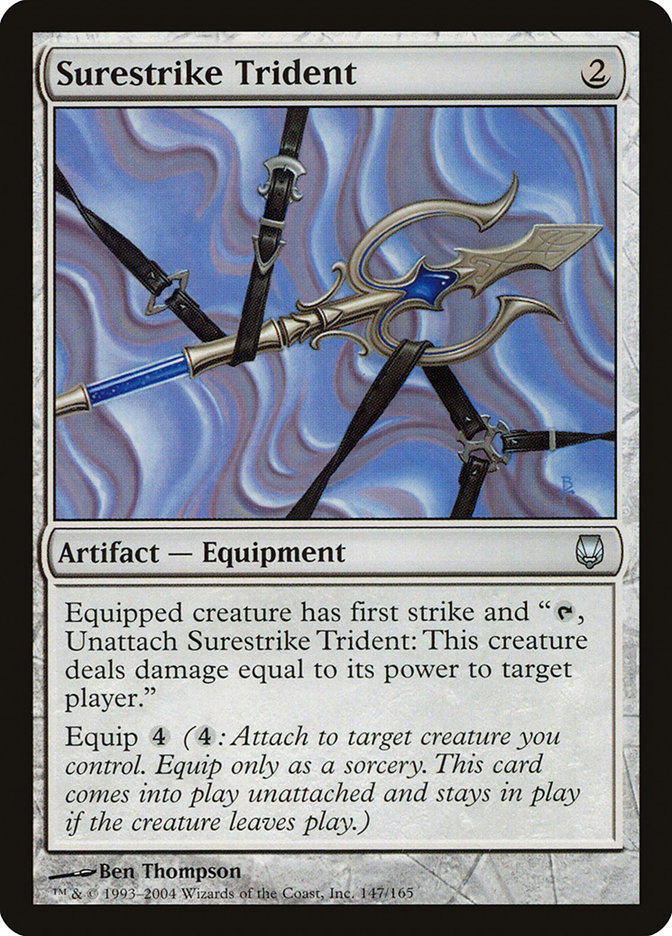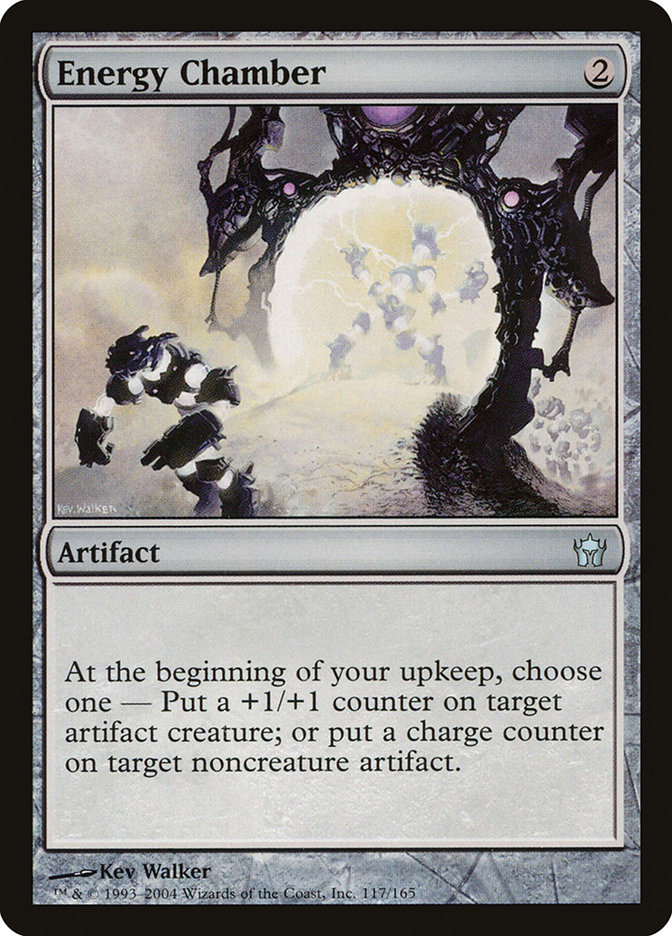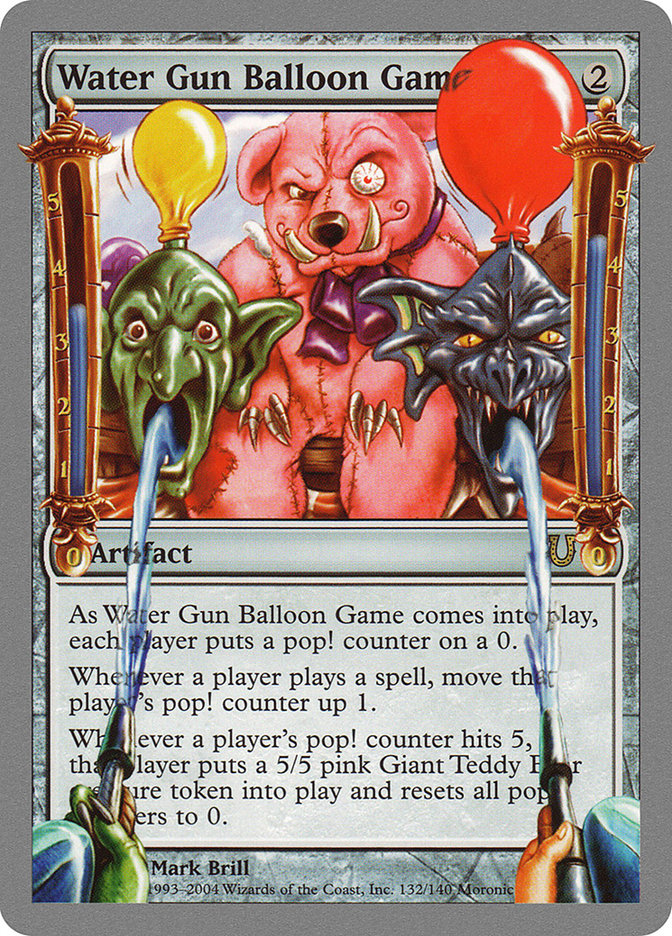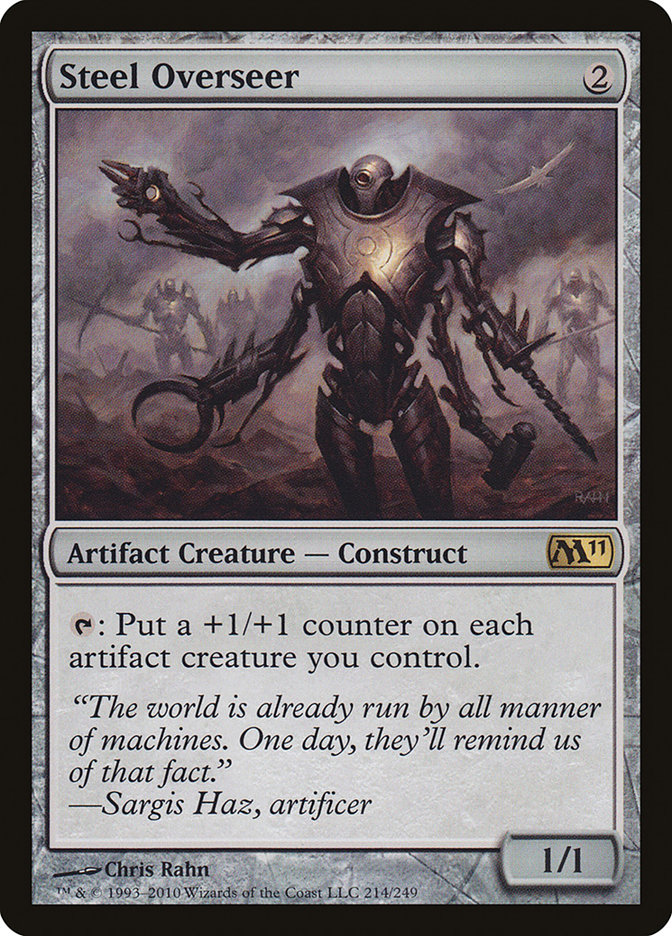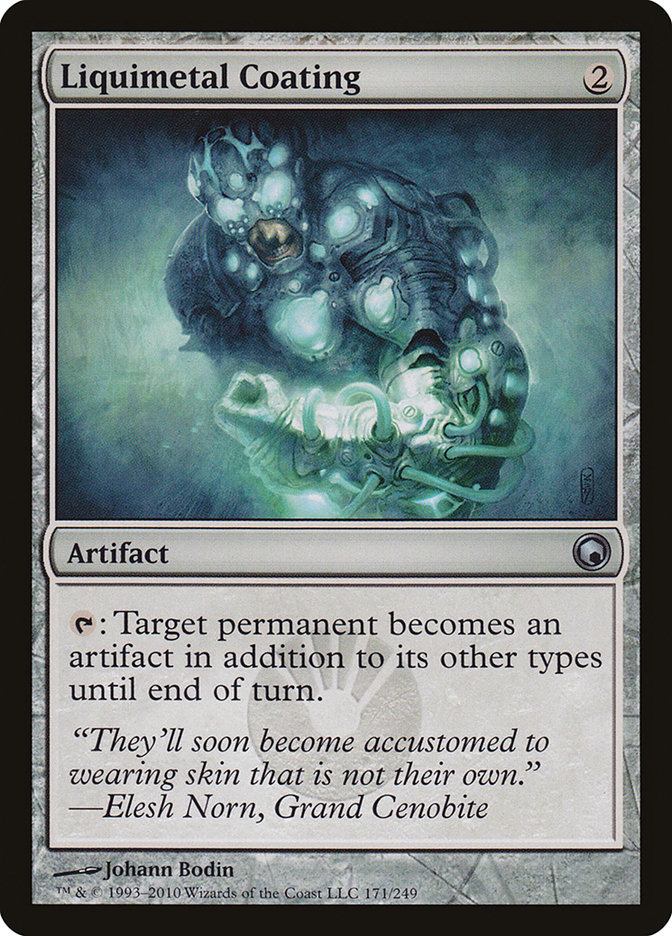Epochrasite MTG Card
| Card sets | Released in 4 setsSee all |
| Mana cost | |
| Converted mana cost | 2 |
| Rarity | Rare |
| Type | Artifact Creature — Construct |
| Power | 1 |
| Toughness | 1 |
Text of card
Epochrasite comes into play with three +1/+1 counters on it if you didn't play it from your hand. When Epochrasite is put into a graveyard from play, remove it from the game with three time counters on it and it gains suspend.
Cards like Epochrasite
Epochrasite stands out as an intriguing artifact creature in Magic: The Gathering with its resilience and unique reanimation ability. This card bears similarities to other self-recurring creatures like Myr Retriever, which also makes a comeback from the graveyard, though it requires another artifact to be sacrificed. Epochrasite’s distinctive advantage is its ability to return to the battlefield with additional +1/+1 counters without demanding any sacrifices, enhancing its long-term presence in the game.
Other counterparts such as Reassembling Skeleton share the persistent attribute, able to return to play from the graveyard. Yet, unlike Epochrasite, Reassembling Skeleton comes back for a cost each time, without any built-in growth mechanism. Additionally, creatures like Scrapheap Scrounger can recur but are limited by color, requiring specifically black mana and exiling another creature card from the graveyard, making Epochrasite more versatile in deck building.
In evaluating these self-reviving creatures, Epochrasite offers a relatively low-cost, adaptable option for players looking to build decks around recursive threats. Its incremental strength gain positions Epochrasite uniquely among other MTG cards with similar resurgence abilities, suitable for strategies favoring endurance and progressive power accumulation.
Cards similar to Epochrasite by color, type and mana cost
Card Pros
Card Advantage: Epochrasite shines by offering versatile advantages across various game phases, from early game to late game reloads. Its suspended re-entry from the exile zone enables players to maintain or rebuild their board presence without additional card spendings, symbolizing a persistent threat that can repeatedly offer value across the match.
Resource Acceleration: With its low mana cost and the ability to re-enter play from exile, Epochrasite supports strategies that aim at maximizing the use of mana each turn. Although it doesn’t directly accelerate resources, it stretches the value of your mana expenditure over several turns, indirectly contributing to a more efficient resource management.
Instant Speed: While Epochrasite can’t be cast at instant speed itself, its recurring nature allows players to strategize as if it had instant speed potential. After being dealt with, it sets up future turns where it re-enters unexpectedly, paralleling the surprise element often associated with instant speed interactions and allowing players to adapt their board accordingly during their upkeep.
Card Cons
Discard Requirement: The Epochrasite card demands a substantial setup to maximize its potential. Unlike other self-recurring creatures, Epochrasite requires you to control no other creatures upon re-entry to the battlefield from exile. This confines its strategic use, particularly in creature-heavy decks.
Specific Mana Cost: With a fixed cost of two colorless mana, it’s a versatile pick for any deck, yet, for decks focusing on color-synergistic strategies or devotion, Epochrasite isn’t the optimal choice. Additionally, its return from exile demands three mana of any color, potentially stressing your mana curve.
Comparatively High Mana Cost: The initial low-cost investment of Epochrasite does not mitigate its reanimation drawback. Other self-recurring creatures re-enter the battlefield freely, but Epochrasite’s return is gated behind both a mana sink and its delay mechanic. This can dramatically slow down your game tempo, in contrast with more efficient creature cards that immediately impact the board upon casting.
Reasons to Include Epochrasite in Your Collection
Versatility: Epochrasite is a unique card due to its ability to come back from the graveyard after dying, making it a resilient addition to various decks, from aggro to control, enhancing their endurance on the battlefield.
Combo Potential: With its self-recurring mechanism, Epochrasite has synergy with sac-outlets and cards that benefit from creatures entering the battlefield or dying, offering diverse strategic options within a vast array of combo-centric decks.
Meta-Relevance: In a playing environment that’s heavy on removal, Epochrasite proves itself to be a persistent threat. It can repeatedly provide board presence, making it a worthwhile choice in metas where maintaining creatures on the field is a challenge.
How to beat
Epochrasite presents an intriguing challenge on the battlefield in Magic: The Gathering, reemerging from the graveyard with additional +1/+1 counters after its initial destruction. Facing such a persistent creature, players often look for strategic ways to neutralize its recurring advantage. An effective tactic is to employ exile effects, as they prevent Epochrasite from returning to play. Cards like Path to Exile or Scavenging Ooze offer such solutions and disrupt the opponent’s plans to leverage Epochrasite’s resilience.
Another avenue to consider is controlling the board state to limit Epochrasite’s impact when it does return. Sweepers like Wrath of God or Blasphemous Act can clear the board, including a revived Epochrasite, regardless of its increased size. Additionally, taking advantage of Epochrasite’s suspended state is key; while it is out of play, capitalizing on the window to push for an advantageous position or potentially finish the game becomes critical.
To conclude, the key to mastering the game against recurring threats like Epochrasite involves understanding their mechanics, timing your answers correctly, and anticipating your opponent’s moves. Effective use of removal and board control strategies are essential in outmaneuvering a card designed to withstand traditional defeat.
Where to buy
If you're looking to purchase Epochrasite MTG card by a specific set like Future Sight and Modern Masters, there are several reliable options to consider. One of the primary sources is your local game store, where you can often find booster packs, individual cards, and preconstructed decks from current and some past sets. They often offer the added benefit of a community where you can trade with other players.
For a broader inventory, particularly of older sets, online marketplaces like TCGPlayer, Card Kingdom and Card Market offer extensive selections and allow you to search for cards from specific sets. Larger e-commerce platforms like eBay and Amazon also have listings from various sellers, which can be a good place to look for sealed product and rare finds.
Additionally, Magic’s official site often has a store locator and retailer lists for finding Wizards of the Coast licensed products. Remember to check for authenticity and the condition of the cards when purchasing, especially from individual sellers on larger marketplaces.
Below is a list of some store websites where you can buy the Epochrasite and other MTG cards:
 BUY NOW
BUY NOW BurnMana is an official partner of TCGPlayer
- eBay
- Card Kingdom
- Card Market
- Star City Games
- CoolStuffInc
- MTG Mint Card
- Hareruya
- Troll and Toad
- ABU Games
- Card Hoarder Magic Online
- MTGO Traders Magic Online
See MTG Products
Printings
The Epochrasite Magic the Gathering card was released in 4 different sets between 2007-05-04 and 2018-06-08. Illustrated by Michael Bruinsma.
| # | Released | Name | Code | Symbol | Number | Frame | Layout | Border | Artist |
|---|---|---|---|---|---|---|---|---|---|
| 1 | 2007-05-04 | Future Sight | FUT | 162 | 2003 | Normal | Black | Michael Bruinsma | |
| 2 | 2013-06-07 | Modern Masters | MMA | 205 | 2003 | Normal | Black | Michael Bruinsma | |
| 3 | 2014-11-07 | Commander 2014 | C14 | 238 | 2015 | Normal | Black | Michael Bruinsma | |
| 4 | 2018-06-08 | Commander Anthology Volume II | CM2 | 187 | 2015 | Normal | Black | Michael Bruinsma |
Legalities
Magic the Gathering formats where Epochrasite has restrictions
| Format | Legality |
|---|---|
| Commander | Legal |
| Legacy | Legal |
| Paupercommander | Restricted |
| Modern | Legal |
| Oathbreaker | Legal |
| Vintage | Legal |
| Duel | Legal |
| Predh | Legal |
| Penny | Legal |
Rules and information
The reference guide for Magic: The Gathering Epochrasite card rulings provides official rulings, any errata issued, as well as a record of all the functional modifications that have occurred.
| Date | Text |
|---|---|
| 2007-05-01 | Epochrasite will enter the battlefield with three +1/+1 counters on it if you cast it from a zone other than your hand, or if an effect let you put it directly onto the battlefield. |
| 2021-06-18 | A creature cast using suspend will enter the battlefield with haste. It will have haste until another player gains control of it. (In some rare cases, another player may gain control of the creature spell itself. If this happens, the creature won’t enter the battlefield with haste.) |
| 2021-06-18 | As the second triggered ability resolves, you must cast the card if able. You must do so even if it requires targets and the only legal targets are ones that you really don’t want to target. Timing permissions based on the card’s type are ignored. |
| 2021-06-18 | Cards exiled with suspend are exiled face up. |
| 2021-06-18 | Exiling a card with suspend isn’t casting that card. This action doesn’t use the stack and can’t be responded to. |
| 2021-06-18 | If an effect refers to a “suspended card,” that means a card that (1) has suspend, (2) is in exile, and (3) has one or more time counters on it. |
| 2021-06-18 | If the card has in its mana cost, you must choose 0 as the value of X when casting it without paying its mana cost. |
| 2021-06-18 | If the first triggered ability of suspend (the one that removes time counters) is countered, no time counter is removed. The ability will trigger again at the beginning of the card’s owner’s next upkeep. |
| 2021-06-18 | If the second triggered ability is countered, the card can’t be cast. It remains exiled with no time counters on it, and it’s no longer suspended. |
| 2021-06-18 | If the spell requires any targets, those targets are chosen when the spell is finally cast, not when it’s exiled. |
| 2021-06-18 | If you can’t cast the card, perhaps because there are no legal targets available, it remains exiled with no time counters on it, and it’s no longer suspended. |
| 2021-06-18 | If you cast a card “without paying its mana cost,” such as with suspend, you can’t choose to cast it for any alternative costs. You can, however, pay additional costs. If the card has any mandatory additional costs, you must pay those if you want to cast the card. |
| 2021-06-18 | Suspend is a keyword that represents three abilities. The first is a static ability that allows you to exile the card from your hand with the specified number of time counters (the number before the dash) on it by paying its suspend cost (listed after the dash). The second is a triggered ability that removes a time counter from the suspended card at the beginning of each of your upkeeps. The third is a triggered ability that causes you to cast the card when the last time counter is removed. If you cast a creature spell this way, it gains haste until you lose control of that creature (or, in rare cases, you lose control of the creature spell while it’s on the stack). |
| 2021-06-18 | The mana value of a spell cast without paying its mana cost is determined by its mana cost, even though that cost wasn’t paid. |
| 2021-06-18 | When the last time counter is removed, the second triggered ability of suspend (the one that lets you cast the card) triggers. It doesn’t matter why the last time counter was removed or what effect removed it. |
| 2021-06-18 | You are never forced to activate mana abilities to pay costs, so if there is a mandatory additional mana cost (such as from Thalia, Guardian of Thraben), you can decline to activate mana abilities to pay for it and hence fail to cast the suspended card, leaving it in exile. |
| 2021-06-18 | You can exile a card in your hand using suspend any time you could cast that card. Consider its card type, any effects that modify when you could cast it (such as flash) and any other effects that stop you from casting it (such as from Meddling Mage’s ability) to determine if and when you can do this. Whether you could actually complete all steps in casting the card is irrelevant. For example, you can exile a card with suspend that has no mana cost or that requires a target even if no legal targets are available at that time. |
